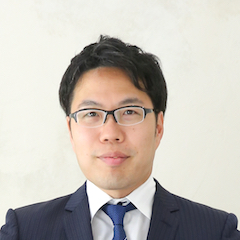MEMBERS
-
 Tsuyoshi Osawa Associate Professor
Tsuyoshi Osawa Associate Professor- 03-5452-5025
-
 Kazuyuki Yamagata Lecturer
Kazuyuki Yamagata Lecturer
Recent Publications
Research
Cancer is one of the biggest issues of medicine and biology in the 21st century, and integration medicine, biology, engineering, and chemistry is essential for conquiring cancer. Recent years, it has become clear that the extreme microenvironment surrounding cancer cells (Tumor microenvironment) promotes cancer progression. Our laboratory aims to develop novel cancer treatments from the comprehensive Nutri-Omics approach by integration of multi-layer omics of cancer cell including genome, epigenome, transcriptome, proteome, metabolome in terms of tumor microenvironments.
Identification of novel cancer metabolites to promote cancer :
Cancer cells accumulate physiologically active cancer metabolites (known as oncotabolites) according to the extreme tumor microenvironments and contribute to aggressiveness of canccer such as cancer proliferation, invasion and metastasis. We aimed to identify unknown oncometabolites and examine their roles in cancer cells.
Understanding cancer metabolism in tumor microenvironments :
Cancer cells acquire malignancy in extreme tumor microenvironments such as hypoxia, nutrient deprivation and acidic pH. Our goal is to elucidate multi-layer cancer metabolic adaptations against carbohydrates, lipids and amino acids that have been studied by independent paradigms.
Development of cancer therapies through comprehensive "Nutriomics" approach :
Upon integration of genome, epigenome, transcriptome, proteome, and metabolome data through the comprehensive “Nutri-Omics” approach, we try to clarify the transcriptional-metabolic system in cancer cells accompanying tumor microenvironments, leading to the development of novel anti-cancer treatments.
